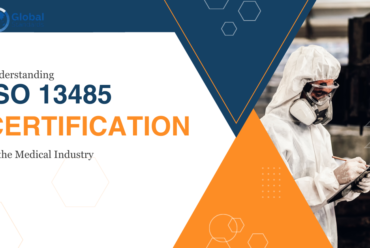The Role of ISO 13485 in Global Medical Device Market Access
Gaining Access to International Markets
Gaining access to international markets is a difficult but essential objective for producers in the heavily regulated medical device sector. Producers must meet several regulatory requirements, many of which align with international standards, to sell medical devices in other nations. The medical device industry’s worldwide standard for Quality Management Systems (QMS), ISO 13485, is essential for helping producers fulfil these standards and open up international markets. However, comprehending and implementing ISO 13485 requires extensive training. This article examines how ISO 13485 training helps medical device companies enter international markets.ISO 13485 Certification in Global Medical Device Market Access.
ISO 13485 Training’s Contribution to Compliance
ISO 13485 training is crucial for businesses that manufacture medical devices to achieve and maintain compliance with the standard. The training provides staff members with the information and abilities needed to comprehend the standard’s needs, implement efficient QMS procedures, and ensure continuous compliance. Here’s how ISO 13485 training facilitates access to international markets:
Making Sure International Regulatory Requirements Are Met
Understanding and adhering to international regulatory requirements is one of the main advantages of ISO 13485 training for firms. Numerous regulatory agencies, including Health Canada and the European Medicines Agency (EMA), demand or accept ISO 13485 certification as part of their clearance procedures. Training ensures employees are aware of these regulatory standards and can align the company’s QMS with ISO 13485 to meet them.
Additionally, adhering to ISO 13485 makes it easier to get CE certification in the European Union, which is a mandatory requirement for selling medical devices in EU member states.
A robust QMS also improves the company’s credibility and reputation, facilitating market expansion and fostering trust with regulators and consumers.
Enabling the Certification Procedure
Becoming certified by ISO 13485 is a difficult and demanding process that requires careful planning and familiarity with the standard. ISO 13485 training equips staff members with the information and abilities necessary to successfully apply the standard’s criteria, helping businesses prepare for certification.
Employees receiving training better understand the certification process, including the procedures, necessary paperwork, and upcoming audits. This knowledge ensures the business can handle any possible problems that may arise during the certification audit and be adequately prepared for it.
ISO 13485 training helps businesses obtain certification more rapidly by streamlining the certification process, allowing them to access international markets sooner.
Maintaining Compliance and Encouraging Continuous Improvement
Adherence to ISO 13485 is a continuous commitment rather than a one-time accomplishment. A fundamental tenet of ISO 13485 is continuous improvement, and maintaining compliance requires frequent QMS monitoring, auditing, and upgrading. ISO 13485 training promotes continuous development by teaching staff members how to pinpoint problem areas, carry out fixes, and assess the results of those fixes.
Additionally, training ensures staff members remain current on the most recent legal mandates and industry best practices for medical devices. This ongoing education is crucial to ensure the business can continue to comply with ISO 13485.
Lowering Liability and Risk
Breaking regulatory standards leads to serious risks and liabilities for medical device companies, including product recalls, fines, and reputational harm. ISO 13485 training helps reduce these dangers by ensuring staff members comprehend the legal standards and prepare to uphold compliance.
Training helps businesses avoid expensive legal problems and product recalls that could impede their access to international markets by lowering the risk of non-compliance. A proactive approach to compliance bolstered by continuous training maintains a competitive edge in international markets and navigates the intricate regulatory environment of the medical device sector.




No Comments